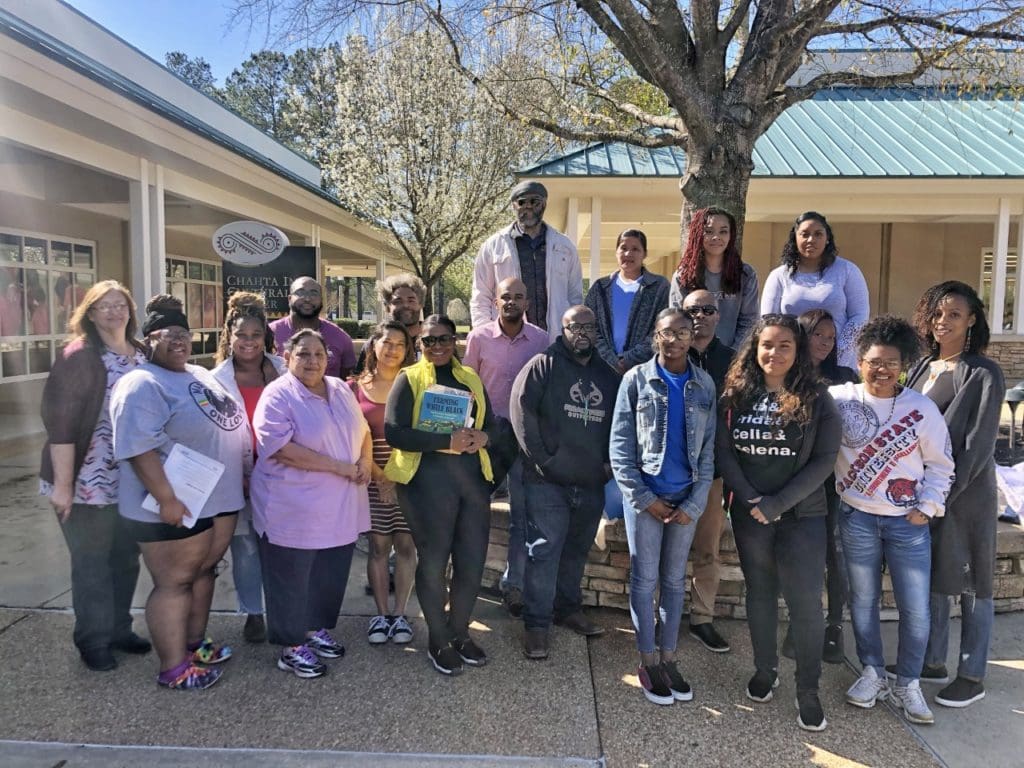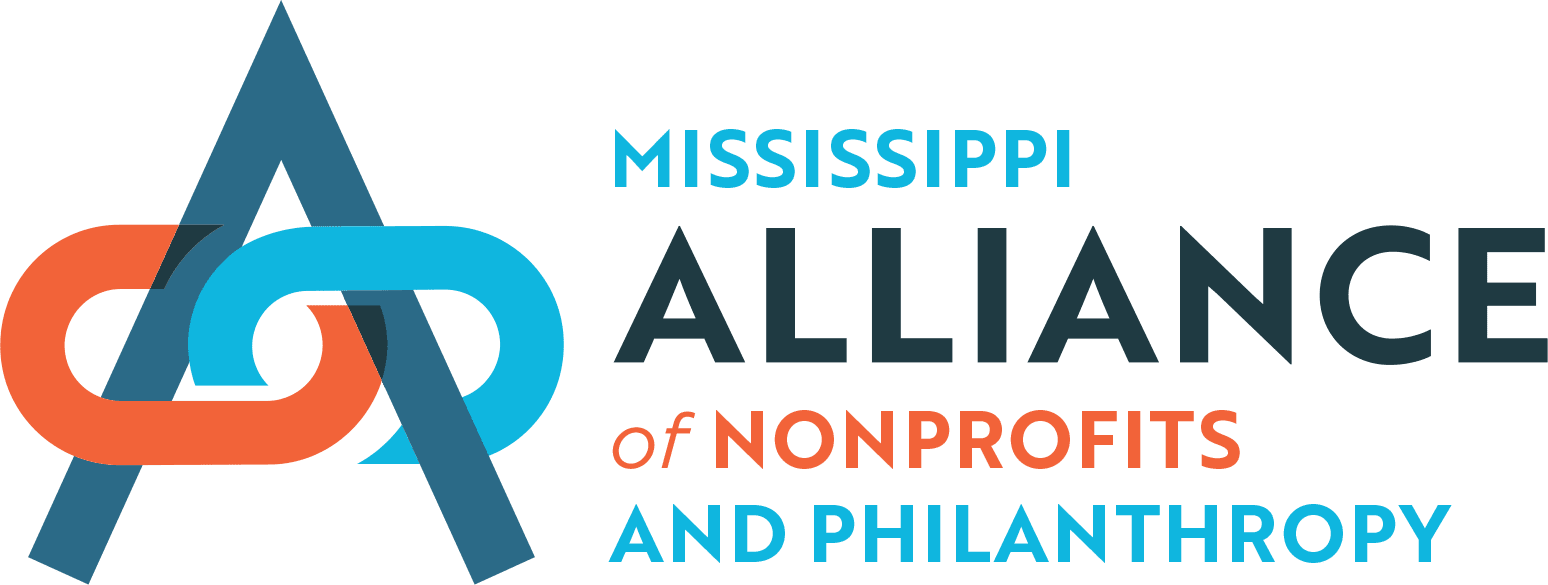Growing Regional Food Systems & Economies

In 2016, some Black, Indigenous, and Asian American food systems stakeholders and allies from across the state of Mississippi were able to convene together for the first time to dream about transforming the local and state level food systems. This gathering was made possible by the W.K. Kellogg Foundation (WKKF). The outcome of the gathering was the formation of the Mississippi Food Justice Collaborative with the common goal of improving the health of Mississippians through increasing access to healthy, local, culturally appropriate food, educating people about healthy food, building the capacity of local farmers, and increasing the amount of local food purchased by schools and institutions.
WKKF provided funding to the National Center for Appropriate Technology (NCAT) Gulf States to facilitate the project and subgrant funds to each of the Mississippi Food Justice Collaborative partners. Today, the Collaborative consists of nine organizational partners, who are committed to work in four regions of Mississippi that have historically been some of the most impacted by systemic oppression and divestments: the Delta, Central Mississippi, the Coast, and the Mississippi Choctaw reservation.
In the last six years, some of our accomplishments include:
Creating Beliefs, Values and Principles as our shared framework. This has also been an essential tool when engaging outside partners and funders, and helps us ensure that any partners we work with are value-aligned. It has been a challenging but transformative practice to build and move at the speed of trust and articulate values individually and institutionally. This framework was embraced by all nine organizational partners and has influenced the development of the Community of Learning and Practice launched by Johns Hopkins Center for a Livable Future.
During the first year of the pandemic, we were able to create capacity-building opportunities on the seven values and engage all of our network (the Collaborative, MS Food Policy Council and MS Food Systems Fellowship) virtually.
We developed and launched the MS Food Systems Fellowship in 2020 and have started investing in 20 BIPOC food systems leaders across the regions of Choctaw, Delta, Coast and Central Mississippi.
We have been able to impact the economic security of the 20 fellows over the last 3 years through unrestricted cash funds. We have been able to move 2 of our fellows into shared organizational leadership, one to be part of the policy council, and one towards home ownership. We have been able to build equitable partnerships with philanthropic entities to invest in Mississippi’s BIPOC food futures.
Agriculture is an essential component of a food system, and it can have a huge impact on the health and wealth of a community. In Mississippi, agriculture is the #1 industry, employing an estimated 17.4% of our state’s workforce. However, 90% of the food consumed in Mississippi is sourced outside of the state, and many local food producers, especially BIPOC farmers and fisherfolk, face huge challenges trying to make a living while growing food for their communities.
Farmers within the Collaborative highlighted early on that one of the biggest challenges of marketing local food to their communities is cost– the community is not always able to afford what they have to sell, and farmers often must seek out higher-paying clientele or market opportunities outside the state. As a result, one of the questions we grapple with is, how do we engage in a culture of health where regional food systems and regional economies are transformed and sustained?
Another huge challenge that was shared with us was the deteriorating base of agrarians. Farmers are an aging population, with the average age of a farmer at 60. There is a growing need to have skilled and trained young people to become stewards of land and water. The question we sit with is, how do we build and sustain a pipeline of food systems thinkers committed to food sovereignty in Mississippi?
What we also heard explicitly in the conversations and from political education is that the BIPOC communities are more adversely impacted by land loss, hunger, food insecurity, food policy and willful divestment from the state through policies and procedures that are inequitable and negatively impact access to information, awareness and resource generation. This led us to deeply question ourselves about, what inherent beliefs, values and principles must be collectively practiced and advocated for, to shift how BIPOC communities are invested in?
The MS Food Justice Collaborative partners consist of folks who are local, state level, regional and national in their scope of work and impact. The coastal partners have been clear about the impact of the climate crisis on regional food systems and economies, from production to procurement. This led us to ask ourselves, what is our commitment to centering the climate crisis in imagining and building the leadership, cultural and policy infrastructure through which we engage in sustainable development?
As we grapple with these questions, we hope that other individuals, networks, funders and non-profits will too. We have miles to go, and we know that we are just in the very beginning phases of our work. Fannie Lou Hamer’s legacy and work, along with the land and water stewardship of the Choctaw, Chickasaw, Natchez and Pascagoula people and the realities of the working class & immigrant communities keep us grounded in being people-centered in our approach to building just, equitable and sustainable food systems and economies.
Contributing to this article:
Liz Broussard Red, Food Justice Project Coordinator, National Center for Appropriate Technology
Noel Didla, Chair, Mississippi Food Policy Council
Alex Lawson, Senior Vice President, Strategic Initiatives, Hope Enterprise Corporation
Asha Tillman, Sustainable Agriculture Specialist, National Center for Appropriate Technology
 |
 MS Food Justice Collaborative Partners |
Related Articles
Equity in Response, Recovery and Resilence: An Action Report in Five Parts
The Mississippi Alliance of Nonprofits and Philanthropy (the Alliance) was created to enhance coordination, collaboration, and communication among nonprofits, maximizing existing funding and expanding resources. The Alliance also focuses on embedding equity into nonprofit work, aiming to ensure equitable outcomes. During the 2022 Jackson water crisis, nonprofits worked to meet urgent needs. Recently, with funding from the US Water Alliance, the Alliance and its partners have been studying equity in disaster response, recovery, and resilience efforts.
Revisiting Big Questions for Philanthropy: When to Bridge and When to Fight
Two big, related questions have hung over many in philanthropy these past several years: first, how best to protect democracy, and second, how to work to bridge differences in a polarized time.
Sabbaticals and the Case for More Rest for Leaders of Color
Social change isn’t possible when nonprofit leaders are exhausted. Extended paid leave helped me — and can help others.

